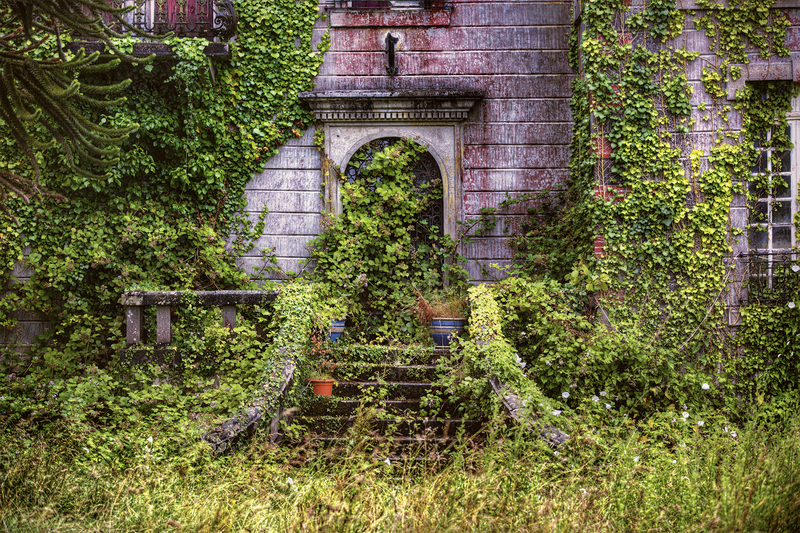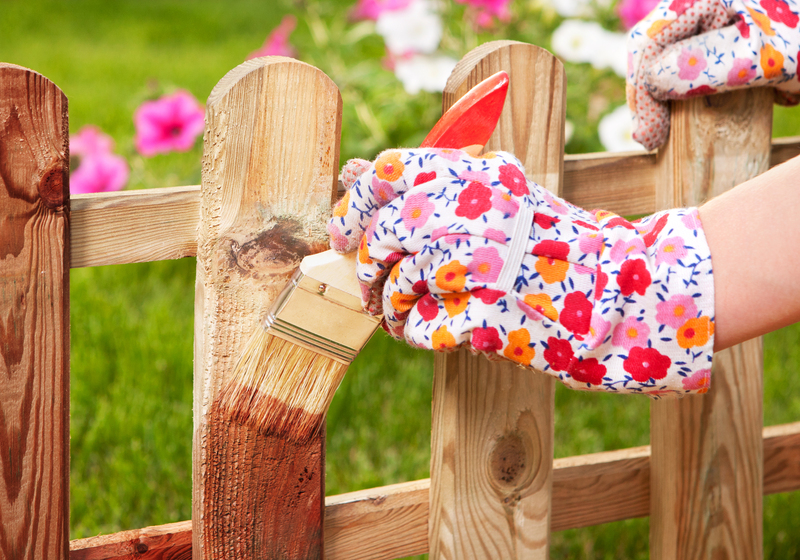Flourish from the Start: 9 Beginner-Friendly Gardening Tips
Posted on 03/07/2025
Flourish from the Start: 9 Beginner-Friendly Gardening Tips
Embarking on your gardening journey can be both exciting and a little daunting. With the right guidance and foundational knowledge, however, even first-time gardeners can achieve a lush, thriving garden oasis. Whether you've got a sprawling backyard or a compact balcony, these beginner-friendly tips will help you cultivate a beautiful, healthy space from the very start.
Why Should You Start a Garden?
Gardening offers a wealth of benefits, from improving mental well-being and encouraging physical activity to providing fresh, homegrown produce. As a beginner, understanding these rewards can motivate you to embrace the gardening process wholeheartedly. Plus, gardening is a wonderful way to foster a connection with nature, reduce stress, and even improve household sustainability. Let's explore how you can flourish from the start with expert-backed gardening tips tailored for beginners.

1. Choose the Right Location for Your Garden
Light and Accessibility Matter
The success of your garden largely depends on its location. Most edible plants and many ornamentals require at least 6 hours of direct sunlight per day. Observe your outdoor space throughout the day to identify sunny and shaded spots. For apartment dwellers, balconies and windowsills with good light are perfect for container gardening.
- Sun-loving plants: Tomatoes, peppers, roses, and sunflowers
- Shade-tolerant varieties: Lettuce, spinach, ferns, and hostas
Remember to position your garden in an area that's convenient to water and regularly tend to. Easy accessibility will encourage frequent care, helping your plants thrive from the start.
2. Start with Healthy Soil
Soil is the Foundation of Your Flourishing Garden
Good soil means healthier plants and fewer problems down the line. Conduct a simple soil test (kits are available from garden centers or online) to learn about your soil's pH and nutrient levels. Most plants flourish in slightly acidic to neutral soil (pH 6-7).
- Amend poor soil: Mix in organic compost, aged manure, or peat moss to improve texture and fertility.
- Drainage check: Ensure soil doesn't stay waterlogged after rain or watering. Raised beds and containers are excellent for controlling soil quality.
Healthy, nutrient-rich soil is the single best investment you can make in your garden's long-term vitality.
3. Select Easy-to-Grow Plants for Beginners
Success Starts with the Right Choices
When you're just starting out, choose plants that are renowned for their resilience and ease of care. Avoid finicky or high-maintenance varieties in your first season.
- Vegetables: Radishes, lettuce, green beans, and zucchini
- Herbs: Basil, mint, chives, and parsley
- Flowers: Marigolds, sunflowers, zinnias, and nasturtiums
Native plants are also a fantastic option, as they are well-adapted to your local climate and pest pressures. With the right selections, your beginner's garden will flourish from the start, building your confidence and enthusiasm.
4. Understand Watering Basics
Right Plant, Right Amount
Overwatering and underwatering are common mistakes for new gardeners. Most plants prefer thorough, infrequent watering rather than frequent light sprinkles. Here are some watering guidelines for garden success:
- Water early in the morning or late in the afternoon to reduce evaporation.
- Check soil moisture by poking your finger an inch below the surface. If it feels dry, it's time to water.
- Use a watering can with a spout for container gardens or a soaker hose for garden beds.
- Mulch around plants to help keep soil cool and moist.
Developing good watering habits will set the foundation for a healthy, thriving garden from day one.
5. Feed Your Garden: Fertilize Wisely
Nourish for Flourish
Just like people, plants need a balanced diet. Incorporate slow-release, organic fertilizers or compost to provide essential nutrients safely. Avoid over-fertilizing, as it can burn plant roots and disrupt the soil's natural balance.
- Compost: Homemade or store-bought compost adds organic material and beneficial microbes.
- Balanced fertilizers: Look for NPK numbers (nitrogen, phosphorus, potassium) on package labels. A balanced blend (such as 10-10-10) supports most plants.
Remember, nourishing your plants well from the beginning will help them produce robust growth and resist diseases.
6. Mulch for Moisture and Weed Control
The Unsung Hero of Healthy Gardens
A layer of organic mulch--like straw, shredded leaves, wood chips, or bark--provides many benefits beyond mere weed suppression:
- Retains soil moisture during hot spells
- Prevents soil erosion and temperature swings
- Reduces the need for frequent watering
- Smothers weeds, reducing your workload
Apply mulch around plants (but not snug up to stems) to give your garden beds a tidy look while fostering optimal plant health from the very beginning.
7. Learn to Identify Pests and Problems Early
Prevention is Better Than Cure
Every gardener--beginner or expert--encounters challenges from insects, fungal issues, or other plant diseases. Identifying problems early lets you take prompt action without resorting to harsh chemicals. Here's how to stay ahead:
- Inspect plants regularly for holes, discoloration, wilting, or sticky leaves.
- Encourage beneficial insects, like ladybugs and bees, which help control pests naturally.
- Remove weakened or damaged leaves to prevent spread.
- Use organic solutions, like neem oil or insecticidal soap, only when necessary.
Healthy vigilance will prevent minor issues from turning into major setbacks as your garden gets established.
8. Practice Regular Maintenance
Consistency Brings Results
The best-kept gardens are the ones tended to consistently. Setting aside just a few minutes each day for your plants can make a world of difference.
- Remove weeds before they take hold and compete with your plants.
- Pinch or prune as needed to encourage bushier growth.
- Harvest vegetables and herbs regularly to spur fresh growth.
Make gardening a daily routine for both your plants' health and your own enjoyment, ensuring your garden flourishes from the start and beyond.
9. Keep Learning and Have Patience
Every Great Gardener Was Once a Beginner
Gardening is a journey of constant learning. Don't get discouraged by small setbacks or failed experiments. Celebrate your wins--no matter how small--and look for resources to continue honing your skills.
- Join local gardening clubs or online forums for shared advice.
- Read books and blogs dedicated to beginner gardening tips and basics.
- Attend workshops or community garden events in your area.
Remember, patience is key. Plants grow at their own pace, and every season brings new lessons. Trust the process, and you'll see the results of your care bloom year after year.

Extra Beginner Gardening Tips to Ensure Success
- Label everything: Use plant markers to identify seeds and transplants. This helps you remember what you've planted and where.
- Start small: It's better to have a small, successful garden than an overwhelming one. Expand as you grow in confidence.
- Invest in quality tools: Basic hand tools, gloves, and a small spade will make planting and weeding easier.
- Keep a gardening journal: Record planting dates, varieties, weather, and outcomes for reference in future seasons.
Conclusion: Cultivate Joy and Growth with These Gardening Basics
Starting a garden is a rewarding adventure, filled with opportunities to nurture, grow, and learn. By implementing these beginner gardening tips, you set your plants--and yourself--up for a flourishing season right from the outset. Remember to choose the right location, invest in soil health, select easy-care plants, and stick to a routine of care and observation. With a little patience and a lot of enthusiasm, your garden will truly flourish from the start--one seed, flower, and vegetable at a time.
Happy gardening--and may all your efforts take root!
Latest Posts
Design a Lively Outdoor Environment for Children to Thrive
Find inspiration for tranquil Zen outdoor spaces
Growing a Greener Tomorrow: The Climate Impact of Gardens

